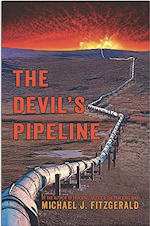 |
| Isaac Asimov |
The 1989 tome came out as most of the U.S. population had given up completely on space travel as something worth pursuing (and funding). That's the sad part. When the U.S. first went to the moon, the plans were for a manned-mission to Mars by 1985.
That never lifted off the ground.
But the uplifting part is about human nature and how in the end, humanity saves itself from cosmic disaster through clever thinking (with a little help from an alien intelligence). A relative handful of humans leave Earth in the book, trying to find a new world for everyone. That's all the plot you get from me.
I just finished reading Nemesis for the first time and like all good science fiction it holds the test of time.
Perhaps oddly, it talks about the need to save the people of Earth who are living on a planet stripped of natural resources and polluted beyond belief. Sound familiar? The Earth's population at the time of Asimov's Nemesis? About 8 billion. That's 1 billion more than live on Earth as I write this. And Earth's population went from 6 billion to 7 billion in just over 11 years.
Are we stripping the planet of natural resources and polluting it beyond belief.
Yup.
If you are a science fiction buff, grab a copy at a used book store or get it through Kindle or the iBooks. No warp drives pushing space ships around in this book - they have better, more interesting stuff, though.











